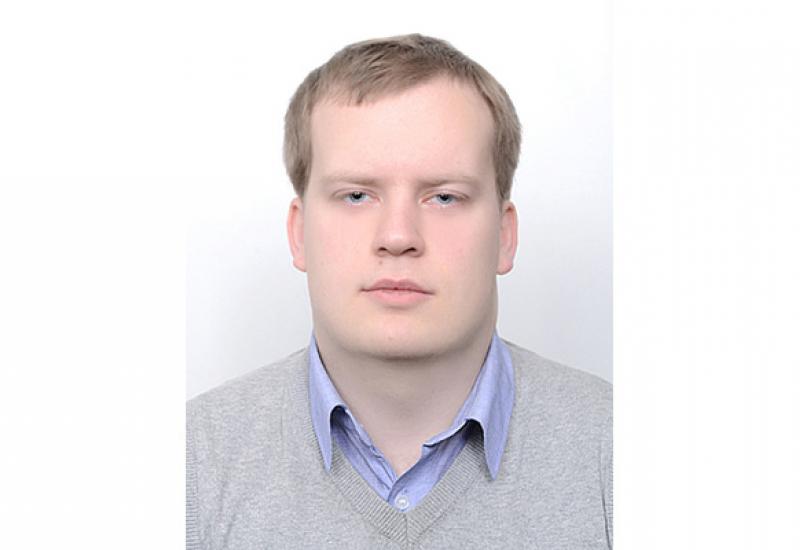Among the winners of the University Contest “Young Teacher-Researcher 2017” there was the name of associate professor of the Department of Physical-Technical Means of Information Protection Dmytro Oleksandrovych Progonov. Since school years, he dreamed of obtaining higher education in one of the best technical universities in Ukraine. So after graduating from Polytechnic Lyceum of Igor Sikorsky Kyiv Polytechnic Institute in 2007 he entered the Physics and Technology Institute of Kyiv Polytechnics.
During his studies at the undergraduate degree he proved to be a diligent and versatile student. In 2010-2012, D. Progonov was a scholarship holder of a number of scholarships (President of Ukraine and rector of Igor Sikorsky Kyiv Polytechnic Institute) and commercial (Nadra Bank and deputy of the Verkhovna Rada Dmytro Andievskyi). In 2012, she took an internship at JDS Uniphase Corporation (Eningen, Germany), specializing in the design and manufacture of control equipment for fiber-optic communication systems.
In 2011 D. Progonov received a bachelor's degree with honors and goes to the master's degree. During studying in the master’s course, he is interested in methods of counteracting the leakage of confidential data of institutions and enterprises, namely, the methods of detecting messages unauthorized to be embedded in multimedia data. As a result of the brilliant defense of the master's thesis, he receives recommendations for continuing his postgraduate study at Igor Sikorsky Kyiv Polytechnic Institute.
While studying in the postgraduate study, Dmytro Olexandrovych is working on solving the problem of detecting messages embedded in digital images using both common and special processing methods. Under the guidance of Ph.D., associate professor of the Department of Physical and Technical Means of Information Protection S.M.Kushch, a young scientist developed a set of methods for high-precision detection of messages embedded in digital imaging. It allowed to timely submit and in 2016 to successfully defend the candidate's dissertation.
Since 2013, D.Progonov works at the Department of Physical and Technical Means of Information Protection at the positions of assistant (2013-2016), senior teacher (2016-2017 years) and associate professor (since 2017). Since 2014, he has been a member of the international scientific community ITHEA (Sofia, Bulgaria). In 2017, he was appointed coordinator of joint projects on information security between the Institute of Mathematics and Informatics of the Bulgarian Academy of Sciences (Sofia, Bulgaria) and Igor Sikorsky Kyiv Polytechnic Institute.
Under the direction of D.Progonov, 16 bachelor papers and 6 master's theses were prepared and defended. Their high scientific level is evidenced by the showing of the results of research in leading scientific institutions of Germany and France. The results of the diploma papers of bachelors and masters were reported at all-Ukrainian and international scientific and technical conferences, where they received positive reviews and received a number of awards.
A scientist is a co-author of a monograph in the field of steganography of multimedia data, author of a series of articles devoted to the development of universal methods for detecting hidden messages, due to the limited availability of up-to-date data on how to hide them in a file-container. The obtained results were presented at the specialized national and foreign scientific and technical conferences, in particular in Germany, Bulgaria. According to the research results of 2015-2018, 7 articles were published in leading professional editions of Ukraine and peer-reviewed international journals, indexed in Scopus, Web of Scie nce, DOAJ, Index Copernicus, and others.
In the future, D.Progonov plans to continue research in the field of steganalysis of multimedia data. The scientist pays special attention to solving the problem of creating high-precision methods for detecting hidden messages, capable of working in conditions of limited or lack of a priori data regarding the used steganographic algorithm. So, we wish the young researcher further successful work.

